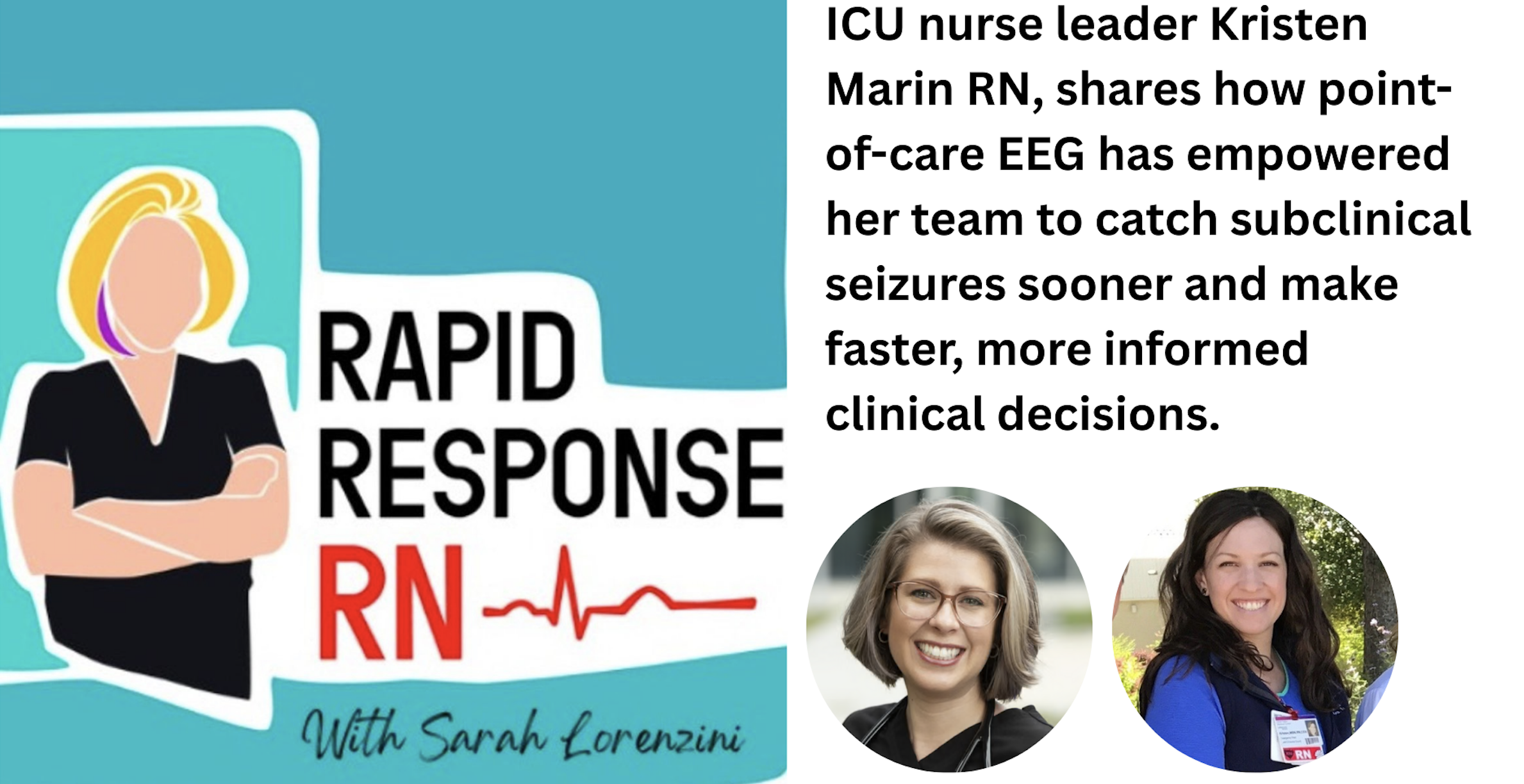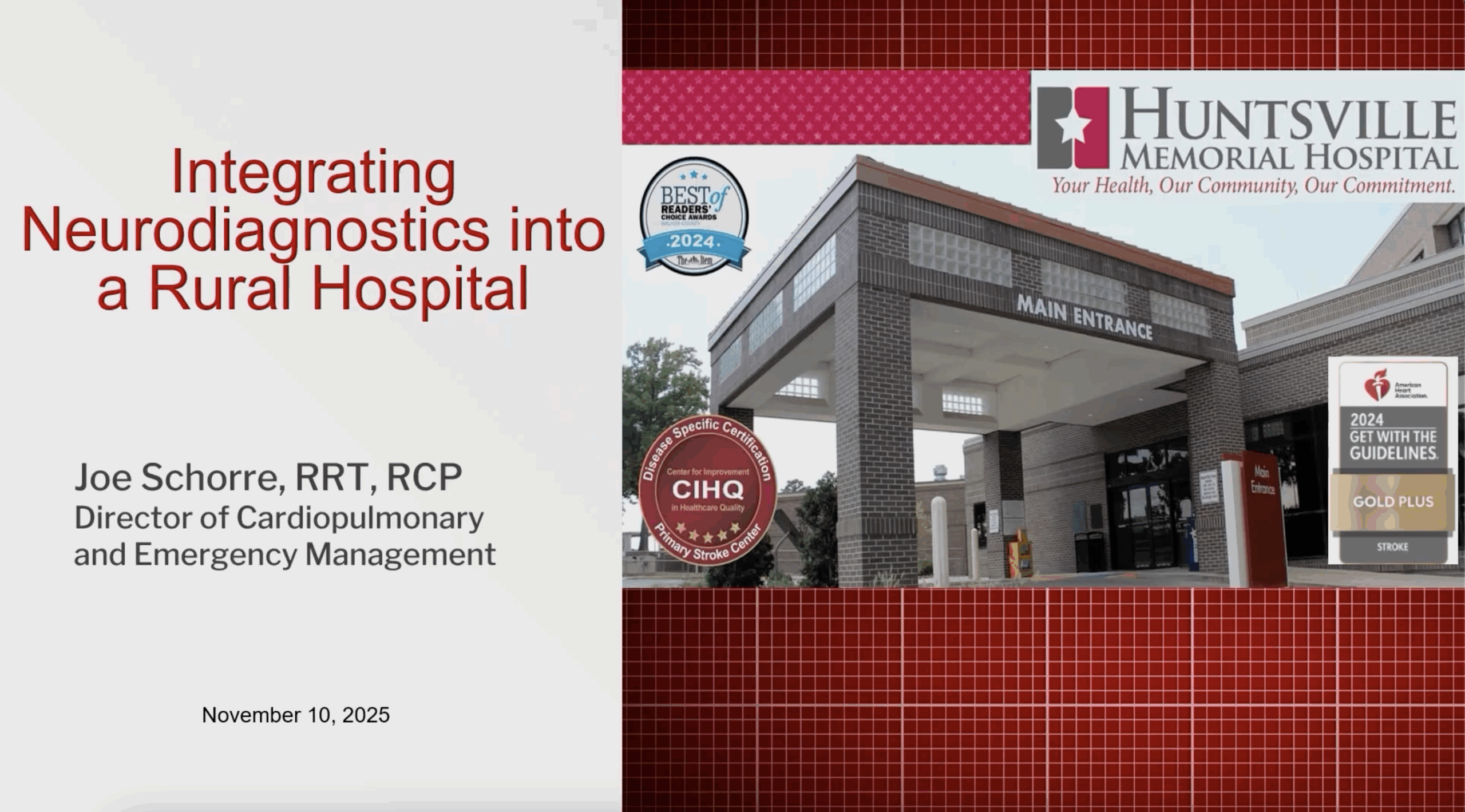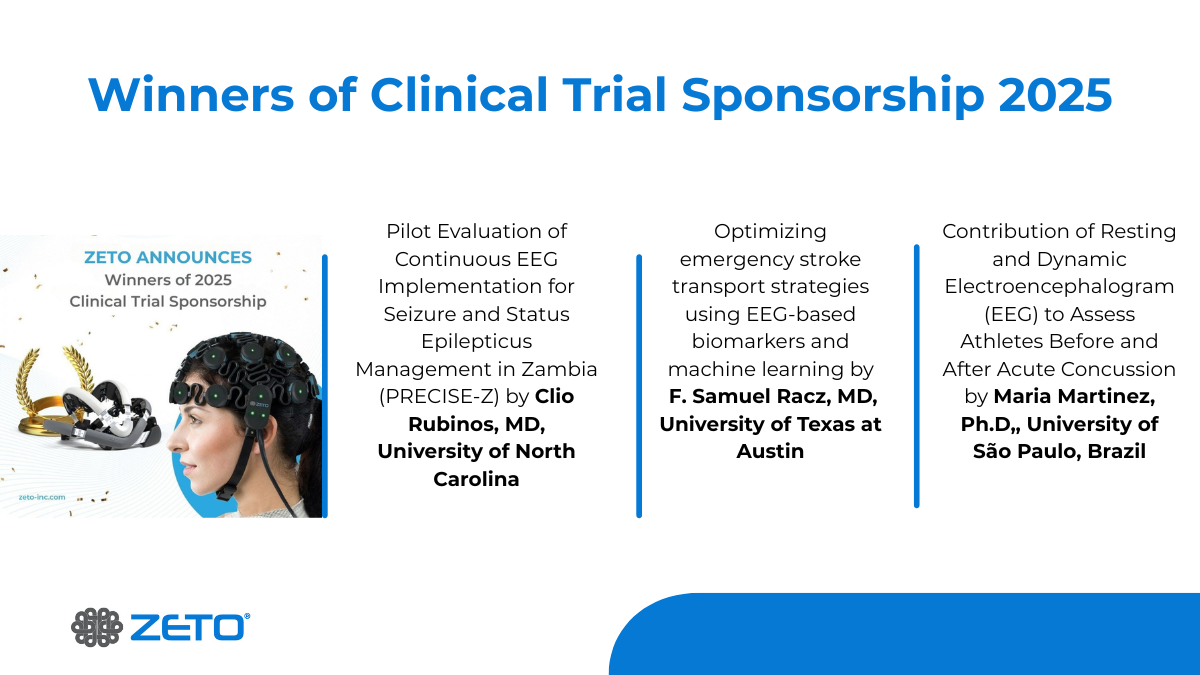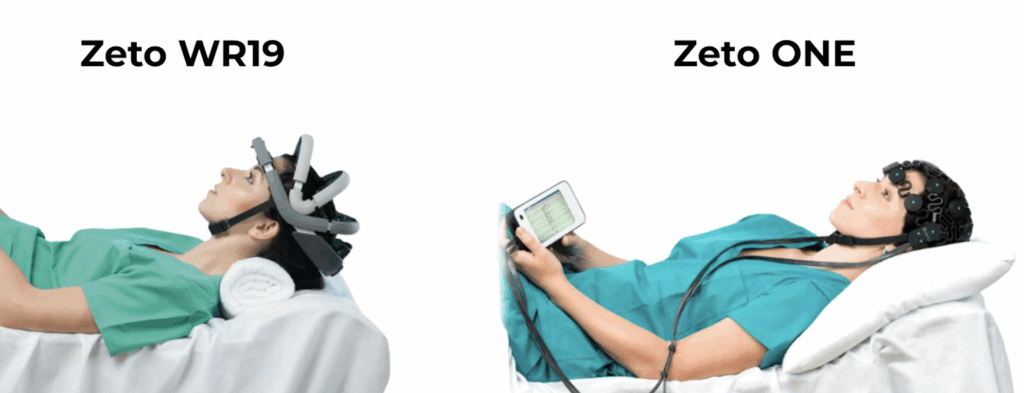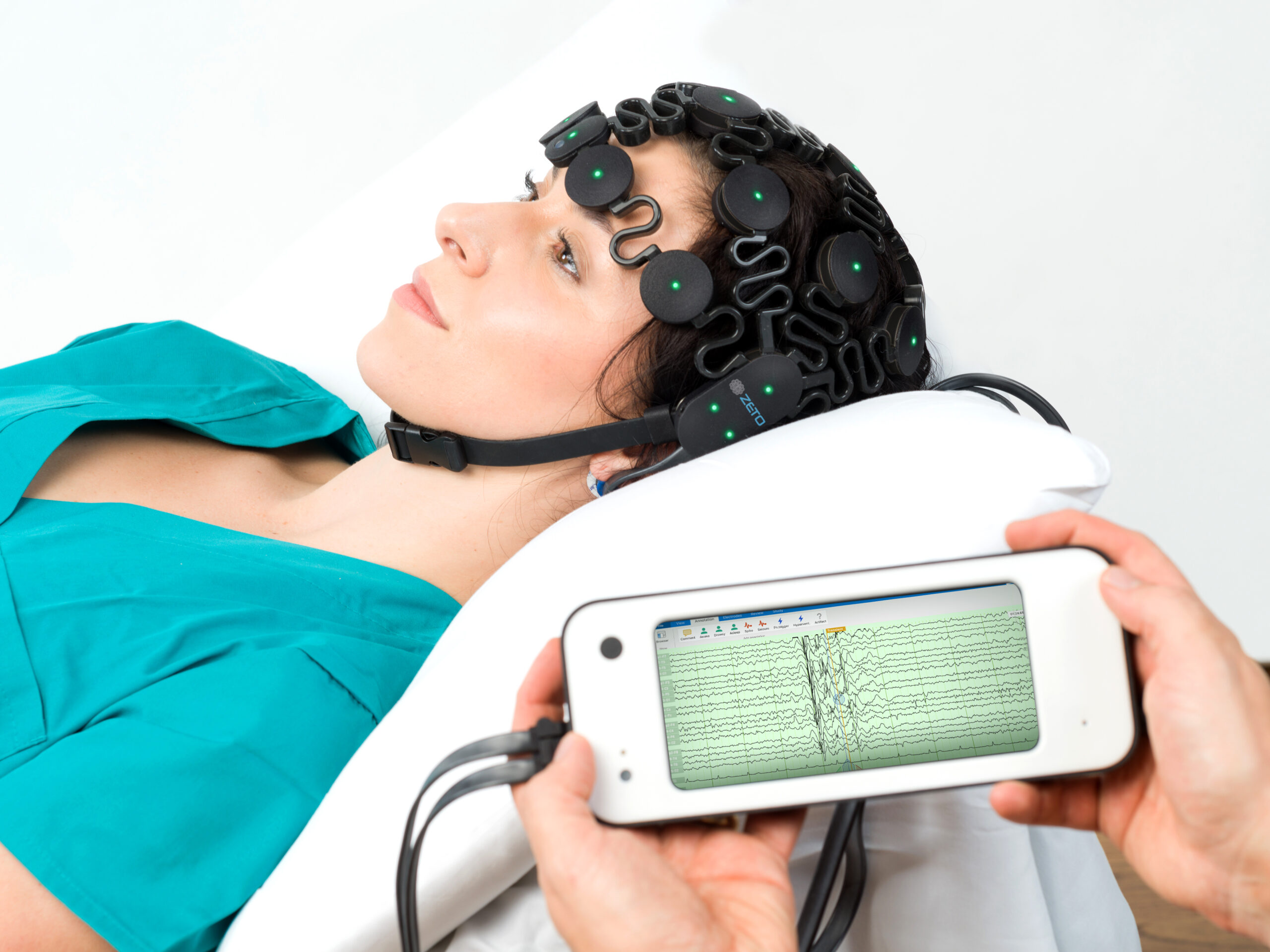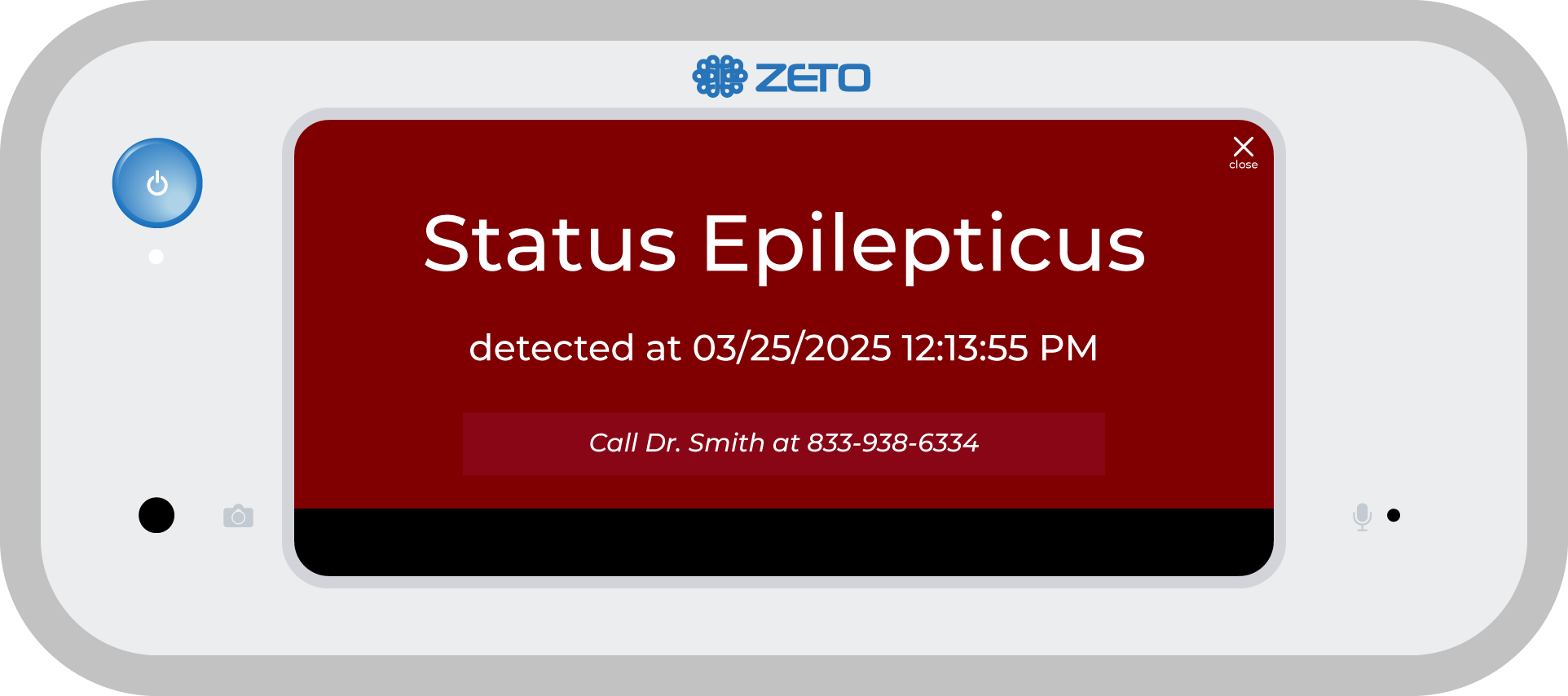How one ICU nurse leader brought rapid EEG to her community hospital – and why it’s keeping more patients near home.
This is a transcription from the Rapid Response RN podcast episode featuring Kristen Marin, RN, Director of Critical Care and Trauma Services at a community hospital in Northern California. The episode explores how rural ICUs can expand care capabilities and keep patients close to home.
Podcast Episode: Rapid Response RN – Caring Close to Home
🎧 Listen to the full episode: LINK
Watch video: https://youtube.com/shorts/HjET5kurFSw
For rural families, a hospital transfer isn’t just a change in care level – it can mean separation, long drives, financial hardship, and missed time with loved ones during critical moments. These are the challenges Kristen Marin has spent nearly 20 years addressing.
A Rural Nurse with a Mission
Kristen has spent her career at the same community hospital, working in Med-Surg, Emergency and Trauma, and now ICU leadership. Her focus has always been on rural healthcare.
“I’m a self-proclaimed rural nursing champion,” she says. “I’m drawn to caring for the people in my community.”
Her goal has been to expand services that reduce unnecessary transfers – one of the biggest challenges in rural care.
The Reality of Rural Critical Care
In rural settings, transfers are often dictated not just by patient needs but by limited local resources, distance, and weather. The nearest tertiary center may be hours away, EMS availability can be unpredictable, and receiving hospitals are often full.
Before introducing EEG services, the hospital routinely transferred patients with:
- unexplained altered mental status
- suspected or possible seizures
- unclear neurological symptoms
Not because they necessarily required a higher level of care, but because clinicians had no way to confirm what was happening.
Expanding ICU Capabilities
When the team explored diagnostic tools to expand their ICU capabilities, point-of-care EEG emerged as a practical solution. Because rural hospitals rarely have neurodiagnostic technologists, Kristen’s team developed a new workflow:
- Provider orders spot EEG
- Trained RN or RT places the headset
- Device captures a 30–60 minute recording
- Data is sent to remote neurologists
- Team receives rapid interpretation and care guidance
“It’s empowering,” Kristen says. “Our staff saw it as professional development. Who knew you could work in a rural hospital and be doing EEGs?”
This approach allowed the hospital to make informed decisions about which patients truly require transfer.
The Result: Fewer Transfers, Faster Answers, Stronger Community Care
“We are keeping these patients local,” Kristen emphasizes.
With rapid EEG, the team can quickly determine whether a patient is seizing, experiencing metabolic encephalopathy, or presenting with non-epileptic symptoms. Families stay involved, patients stay near home, and clinicians make decisions based on data rather than uncertainty.
“I see families at the bedside while we’re doing the EEG, and I can explain what we’re doing and why,” Kristen says. “It’s meaningful. I wish we’d done this sooner.”
Advice to Nurse Leaders: Be the Catalyst
Kristen encourages other rural nurse leaders to:
- Align with your hospital’s mission to prioritize patient-centered care
- Collaborate closely with physicians to ensure successful implementation
- Select technology that supports and empowers staff
- Advocate boldly to drive meaningful change
One Year Later: A More Capable Rural ICU
The hospital now receives requests from outpatient physicians for EEG services – an unexpected but welcome evolution.
“It’s been good for our patients, for our staff, for our hospital,” Kristen says. “I’m so happy we took the jump.”


